Developmental milestones
Notes
Overview
A developmental milestone refers to a specific set of abilities a child should reach by a certain age.
Childhood development refers to a continuous and largely predictable process that involves biological, psychological, and emotional changes that occur from birth to the end of adolescence. The sequence of events can be described in ‘milestones’.
Milestones refer to a specific set of abilities a child should reach by a certain age. These milestones start off simple and then as the child gets older they become more complex. Milestones are divided into key domains, which include:
- Gross motor: using large muscle groups to stand, walk, run.
- Fine motor: using our hands to do many things such as eat, draw, play, write.
- Speech & language: communicating through speech, body language, and gestures.
- Social & emotional: having a relationship with family, friends, and teachers.
- Cognitive: skills in learning, understanding, problem-solving, reasoning, and remembering.
These developmental milestones are assessed at different months of a child’s development through the first five years. They are important for recognising developmental delay, which simply refers to the failure to meet developmental milestones. Developmental delay is common and often transient but may be an indication of an underlying developmental or neurodevelopment disorder.
For more information see our accompanying notes on Developmental delay.
Gross motor
The use of larger muscle groups to walk, stand, run, push and pull.
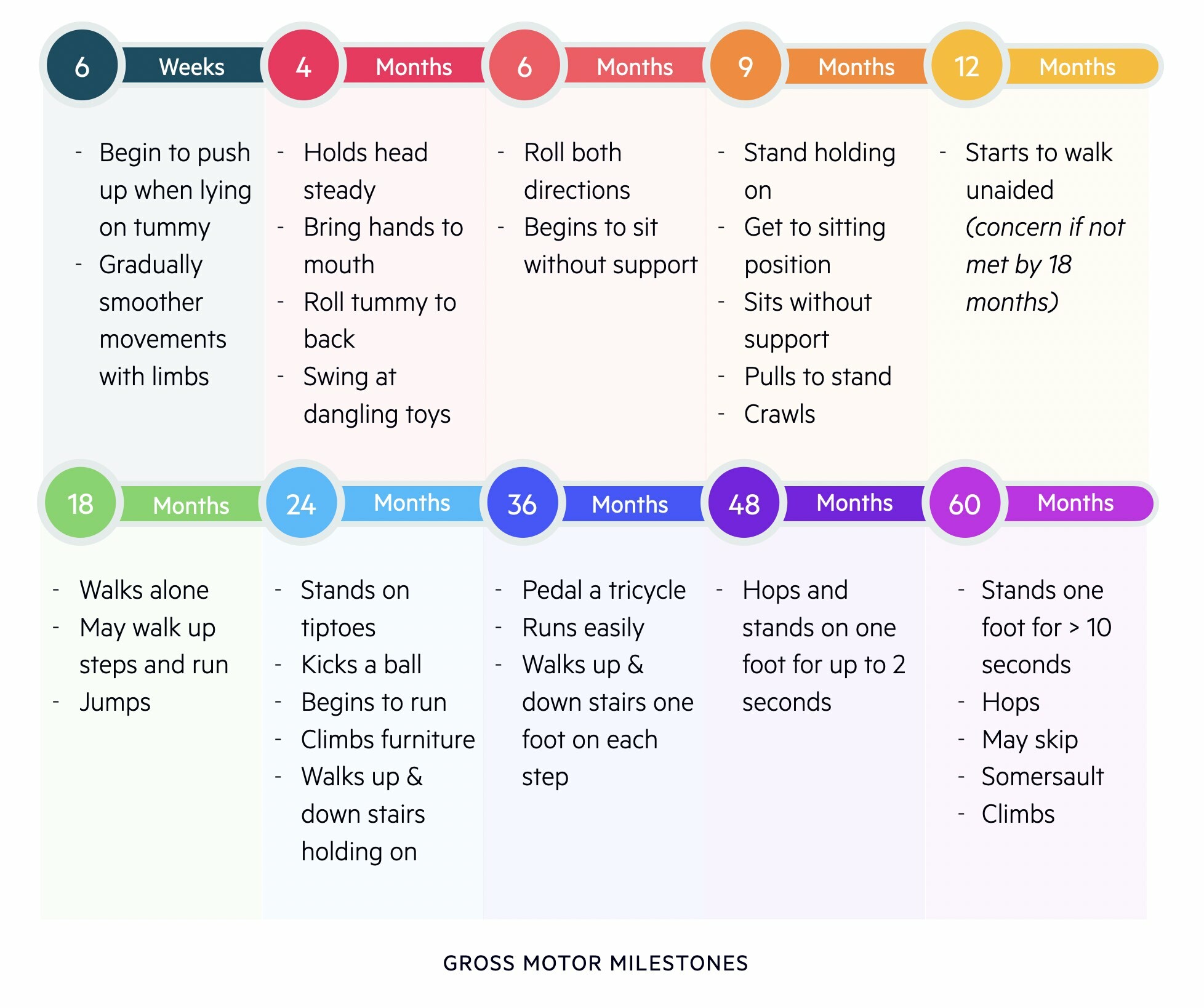
Fine motor/vision
The use of hands to do many complex tasks such as eat, draw, play, and write.
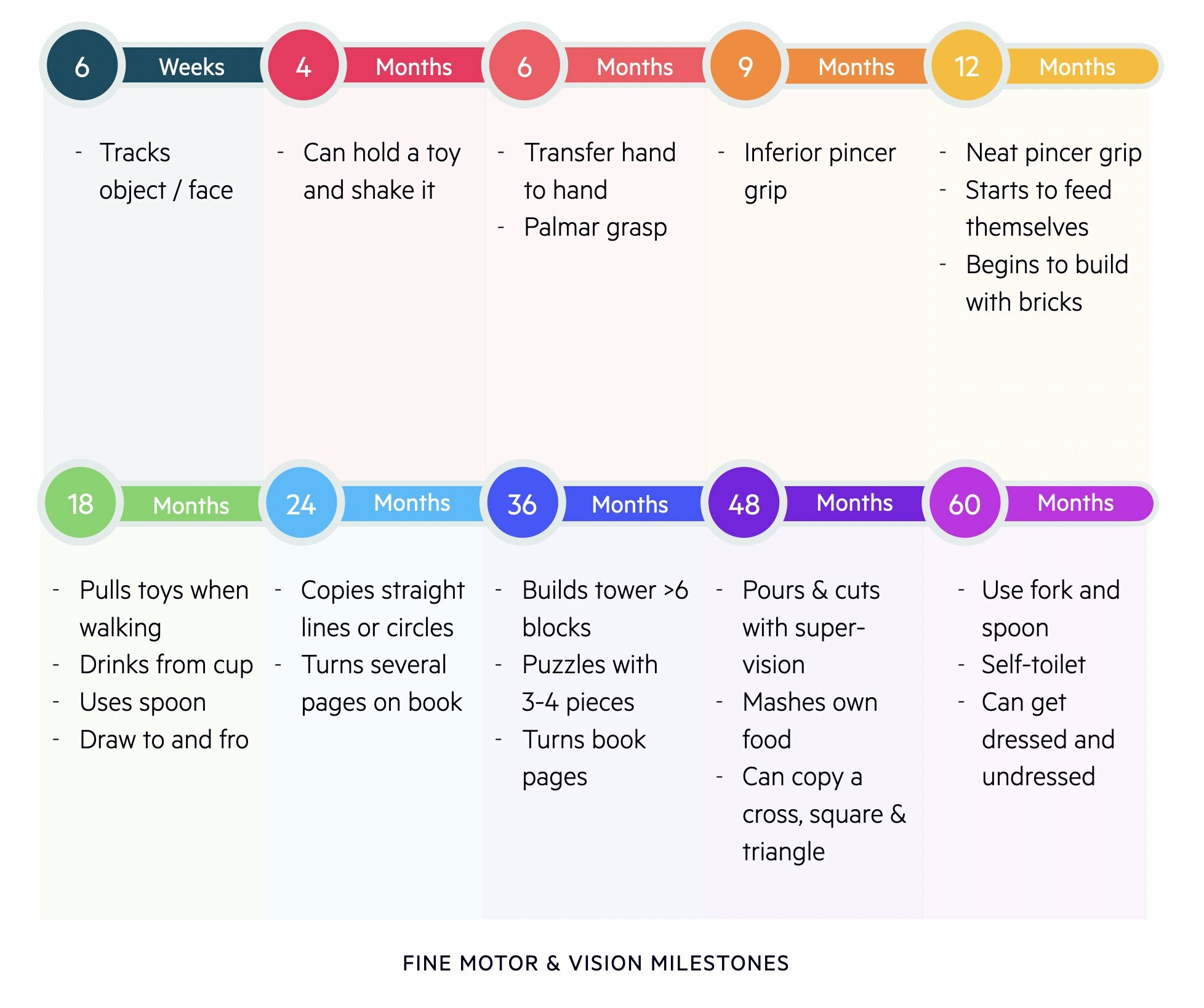
Speech/language
Using body language and speech to communicate with others.
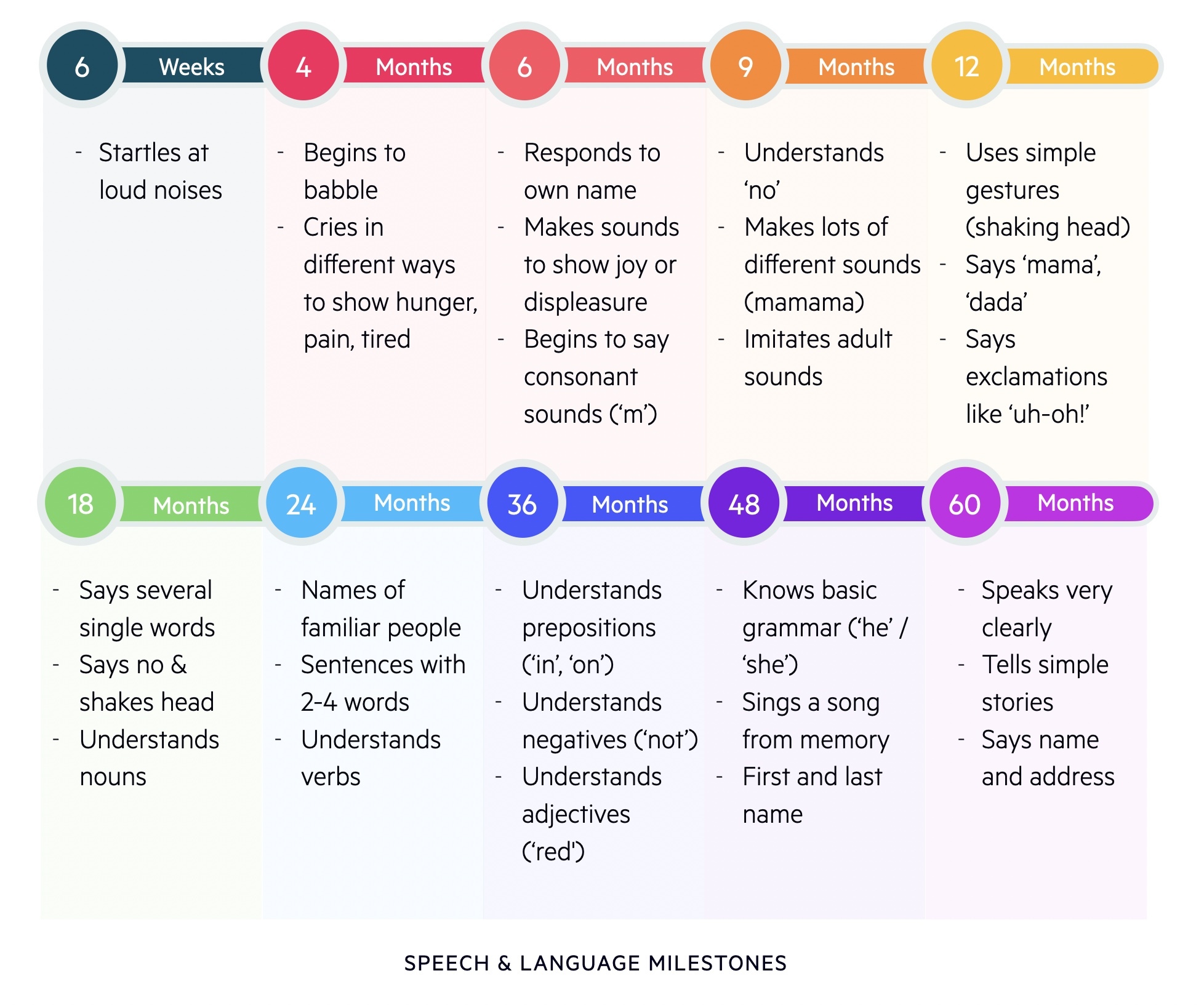
Social/emotional
The development of relationships and being able to interact with others.
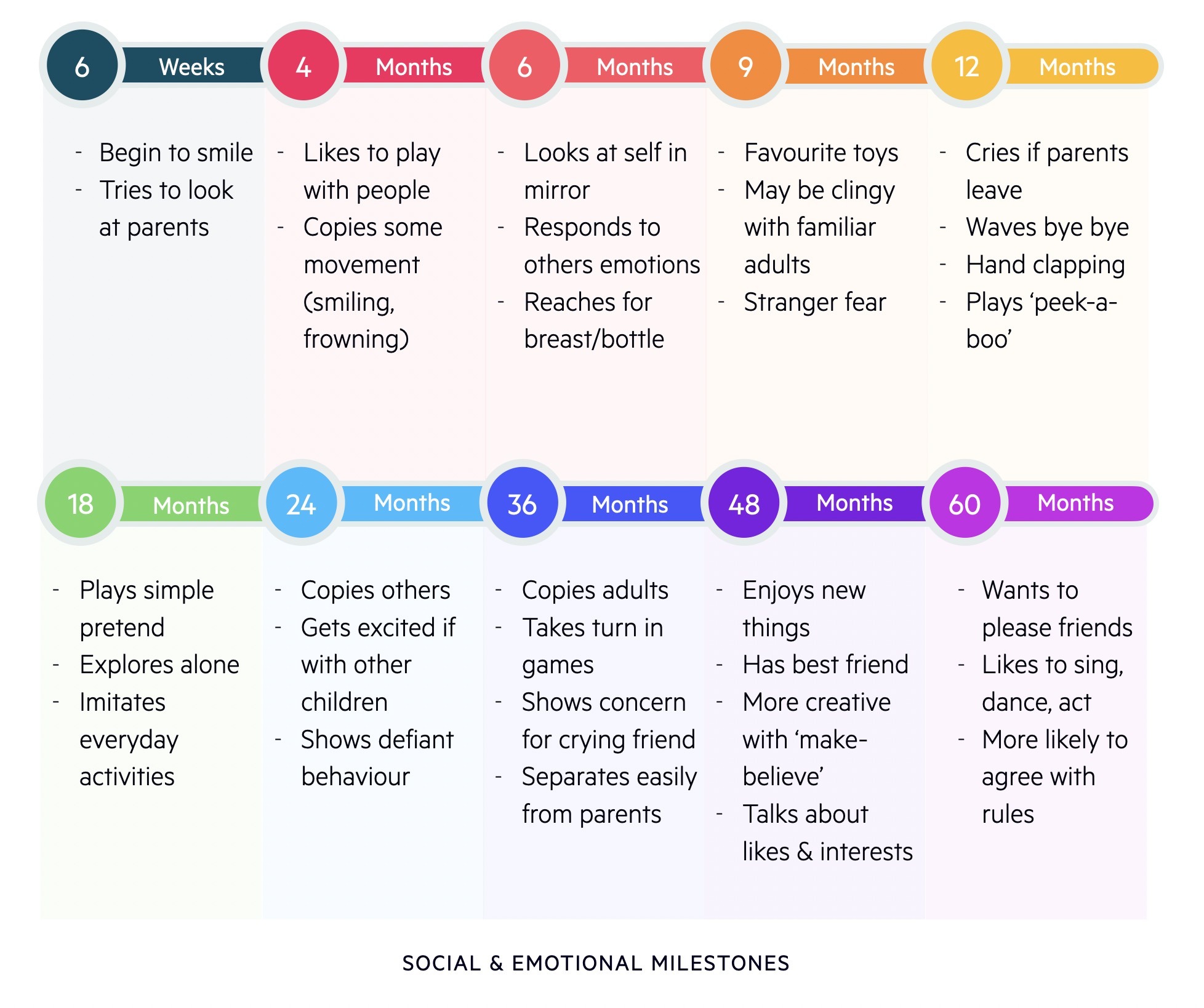
Cognitive
The development of skills in learning, understanding and problem-solving.
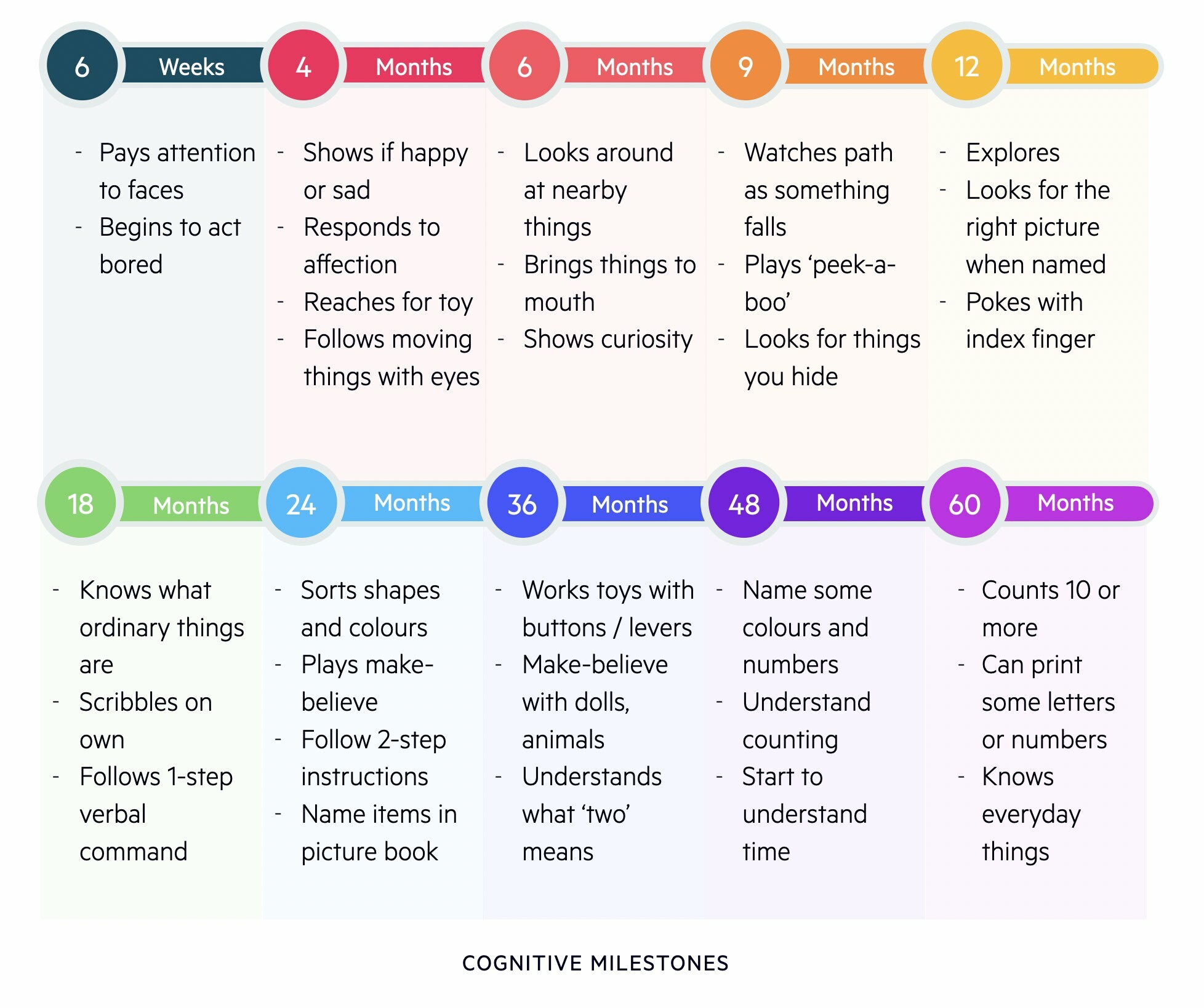
Last updated: June 2022
Have comments about these notes? Leave us feedback
